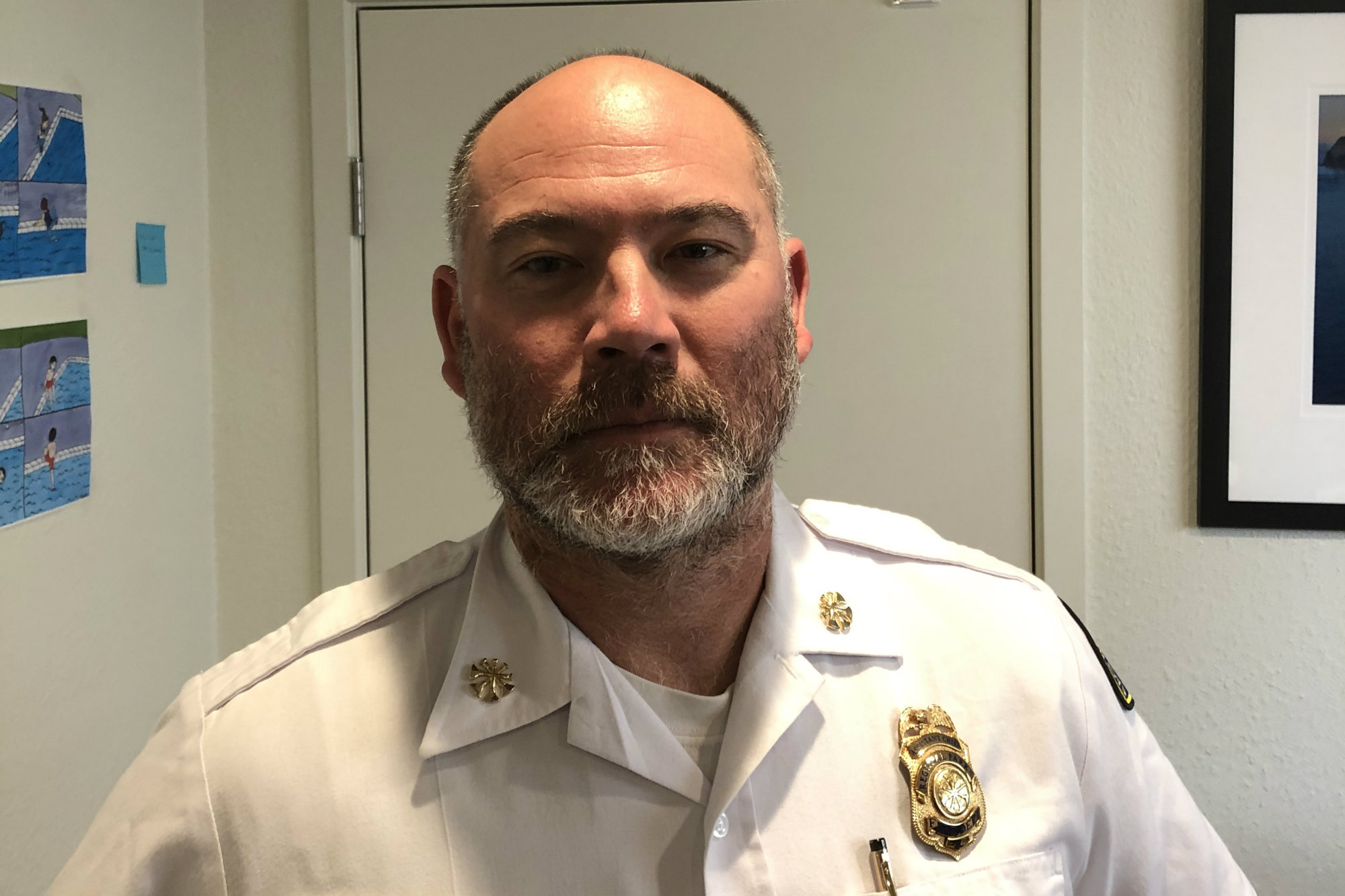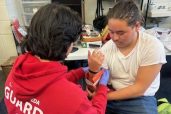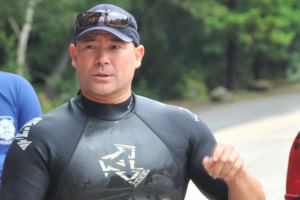I can only speak from my perspective, but I feel a lot stress these days — stress from work, home life and current world affairs.
I wish I could say that I managed better, but I recently found myself eating a pint of Ben & Jerry’s ice cream at 9 o’clock in the morning. It was my way of coping with an unusually bad start to second-grade distance learning, a poor internet connection, and blocked access to a virtual field trip to the Atlanta Aquarium. After several days and pints of Phish Food, we got into the aquarium and enjoyed viewing the whale sharks.
Living with stress and trauma
I can laugh about that morning now, but stress and its negative effects on mental health are real. I have been dealing with post traumatic stress since 1990. The origin comes from being on scene at multiple drownings. At some of the incidents, I was a responding lifeguard who assisted in recovering the victims. At others, I was the on-duty supervisor who responded to the drownings that occurred at one of my facilities. In this role, I oversaw the care of my staff. Now as the aquatic manager, I respond to drownings that occur at all bodies of water within the East Bay Regional Park District. I provide support to our staff within police, fire, and lifeguards, to family members of victims, and lastly, as an ad hoc public information officer to the media.
I’ve been dealing with drownings for a good part of my life, but I didn’t realize how the stress affected me. It starts with the nightmares that immediately followed each drowning. They eventually would become less frequent, yet the nagging guilt would arise. The guilt and the desire to have control over future outcomes led me to become an Emergency Medical Technician (EMT). Becoming an EMT led me to work on an ambulance for five years. The exposure to more trauma led to emotional numbness and the inability to sleep through the night. I found myself comparing my traumatic events to others’ experiences and internally judged myself as being worthy of the guilt and the pain.
With every traumatic event, my emotional backpack got heavier and heavier. As the emotional weight increased, so did the numbness. It led to the desire to isolate myself and, at the same time, the need to be judged worthy of love and value. I became quick to judge and quick to lose my temper. It cost me my first marriage.
However, I wasn’t at my bottom yet. I still needed to accrue tens of thousands of dollars of debt from an uncompleted master’s program, credit cards and gambling. In 2006, I secured a permanent job as an aquatic supervisor and access to a park residence on the side of a mountain. It had no electricity, no drinkable water, a propane gas stove, four gas lights and a gas refrigerator. I thought this was ideal — isolated and remote. I lived there for five and a half years. If you knew me back then, you couldn’t tell from my exterior that I was in pain.
I remember a night that followed a recent drowning, where I woke up in a great amount of pain. Apparently, I had clenched down on my teeth so hard in my sleep that I shattered one of my molars. The immediate fix: a mouthguard. The long-term fix: a dental implant.
Making the connection
My turning point came when I was assigned to attend a training to become a member of our Peer Support Team. At the time, I didn’t know what Peer Support was. As defined by the International Association of Chiefs of Police: “The goal of Peer Support is to provide all public safety employees in an agency the opportunity to receive emotional and tangible support through times of personal or professional crisis and to help anticipate and address potential difficulties.”
During the training, I was paired with a police officer from Palo Alto, Calif., and one activity required us to share what we were currently dealing with. My partner shared with me his difficulties dealing with an uptick in suicides of teenagers. The method of suicide was stepping in front of moving trains. He told me this, and I didn’t know what to say — I was at a complete loss. I tried to connect but I floundered. The instructor called us back in. I was numb to what was just shared with me. The instructor asked if someone wanted to share, and a woman across from me raised her hand. She’s a dispatcher and she began to relay her experience as the lone dispatcher who received the initial call for the San Bruno pipeline explosion in 2010. I remembered that incident. I remembered being outside and looking across the peninsula at a black column of smoke wondering what it was.
The dispatcher finished sharing, and the instructor, an EMS worker from 9/11, asked if anyone else wanted to speak. I raised my hand. I didn’t know what I was going to say. I just started talking and crying. I cried about all the dead children I’d seen and failed to save. I cried about all the pain I had within me, that weighed me down. And I cried about how I refused to let go of that pain because it shaped me. It defined me. It made me who I was. It provided comfort when nothing else could. And if I gave it up, I would be lost, alone, a nobody. I looked at the instructor and saw that she understood and knew my pain. I looked around and saw that everyone there understood. It was the first time I didn’t feel alone.
Message for these times
Now I see a therapist on a consistent basis. I’ve gone through three therapists. Each provided me with what I needed at the time. My current therapist helps me quite a bit in wrapping my head around the chaos of this pandemic and to manage my stress. I wish I could say that I don’t carry any of the pain anymore, but I do. Just not as much, and I try not to let my pain and stress have such a destructive impact in my life. It is an ongoing process, an ongoing journey.
It is so important right now to ask yourself, your family members and co-workers how they are doing. It’s okay to say not good; it’s okay to share; it’s okay to ask for help. We should talk about how we feel. We should talk about the difficulties we have coping with what is happening around us. Even if we cannot physically connect with one another, we can connect emotionally.
As I often remind myself, I am reminding you: You are not alone. You are loved. You are valued.


